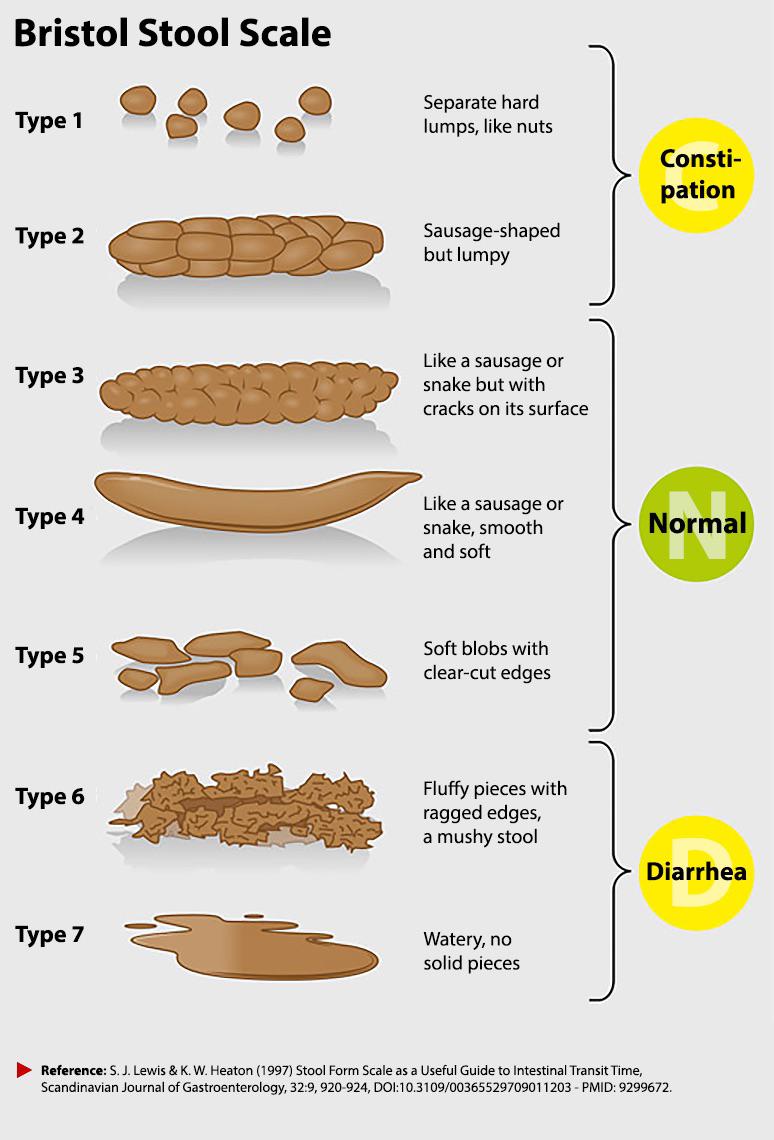Warning: illustrated diagram of the Bristol stool scale

Please correct my English.
The lemming formerly known as:



Now, let’s not exclude a great man like Frank from the conversat–AAAAUUGHHHH!!!


It is an alternative YouTube client. YouTube Revanced is created by taking the official YouTube app and modifying it to add features and remove restrictions. On the other hand, apps like NewPipe, PipePipe, and Tubular are created from scratch by the community to make YouTube API calls and whatnot.
Here is my cheatsheet that has been very helpful. Obviously, this will not teach you how RegEx works, but is a good quick reference when I forget the exact syntax for something.
| Pattern | Description |
|---|---|
. |
Any character, except newline |
\w |
Word |
\d |
Digit |
\s |
Whitespace |
\W |
Not word |
\D |
Not digit |
\S |
Not whitespace |
[] |
Any of a, b, or c |
[] |
Characters between a and e |
[] |
Digit between 1 and 9 |
[[:print:]] |
Any printable character including spaces |
[^abc] |
Any character except a, b or c |
| Pattern | Description |
|---|---|
\G |
Start of match |
^ |
Start of string * |
|
End of string * |
\A |
Start of string |
\Z |
End of string |
\z |
Absolute end of string |
\b |
A word boundary |
\B |
Non-word boundary |
^abc |
Start with abc |
|
End with abc |
For multiline patterns (m flag), ^ and will act as start and end of line.
| Pattern | Description |
|---|---|
\. \* \\ |
Escape special character used by regex |
\t |
Tab |
\n |
Newline |
\r |
Carriage return |
| Pattern | Description |
|---|---|
(abc) |
Capture group |
(a|b) |
Match a or b |
(?:abc) |
Match abc, but don’t capture |
\1 |
Substituted with text matched of the 1st capturing group |
| Pattern | Description |
|---|---|
a* |
Match 0 or more |
a+ |
Match 1 or more |
a? |
Match 0 or 1 |
a{5} |
Match exactly 5 |
a{,3} |
Match up to 3 |
a{3,} |
Match 3 or more |
a{1,3} |
Match between 1 and 3 |
| Pattern | Description |
|---|---|
a(?=b) |
Match a in baby but not in bay |
a(?!b) |
Match a in Stan but not in Stab |
(?<=a)b |
Match b in crabs but not in cribs |
(?<!a)b |
Match b in fib but not in fab |
(?<![a-z])abc(?![a-z]) |
Match abc without any letters before/after |
# RegExp
## Character classes
| Pattern | Description |
| ------------- | ---------------------------------------- |
| `.` | Any character, except newline |
| `\w` | Word |
| `\d` | Digit |
| `\s` | Whitespace |
| `\W` | Not word |
| `\D` | Not digit |
| `\S` | Not whitespace |
| `[abc]` | Any of a, b, or c |
| `[a-e]` | Characters between `a` and `e` |
| `[1-9]` | Digit between `1` and `9` |
| `[[:print:]]` | Any printable character including spaces |
| `[^abc]` | Any character except `a`, `b` or `c` |
## Anchors
| Pattern | Description |
| ------- | ---------------------- |
| `\G` | Start of match |
| `^` | Start of string \* |
| `$` | End of string \* |
| `\A` | Start of string |
| `\Z` | End of string |
| `\z` | Absolute end of string |
| `\b` | A word boundary |
| `\B` | Non-word boundary |
| `^abc` | Start with `abc` |
| `abc$` | End with `abc` |
For multiline patterns (`m` flag), `^` and `$` will act as start and end of line.
## Escaped characters
| Pattern | Description |
| ---------- | -------------------------------------- |
| `\. \* \\` | Escape special character used by regex |
| `\t` | Tab |
| `\n` | Newline |
| `\r` | Carriage return |
## Groups
| Pattern | Description |
| --------- | -------------------------------------------------------- |
| `(abc)` | Capture group |
| `(a\|b)` | Match `a` or `b` |
| `(?:abc)` | Match `abc`, but don't capture |
| `\1` | Substituted with text matched of the 1st capturing group |
## Quantifiers
| Pattern | Description |
| -------- | --------------------- |
| `a*` | Match 0 or more |
| `a+` | Match 1 or more |
| `a?` | Match 0 or 1 |
| `a{5}` | Match exactly 5 |
| `a{,3}` | Match up to 3 |
| `a{3,}` | Match 3 or more |
| `a{1,3}` | Match between 1 and 3 |
## Lookahead & Lookbehind
| Pattern | Description |
| --- | --- |
| `a(?=b)` | Match `a` in `baby` but not in `bay` |
| `a(?!b)` | Match `a` in `Stan` but not in `Stab` |
| `(?<=a)b` | Match `b` in `crabs` but not in `cribs` |
| `(?<!a)b` | Match `b` in `fib` but not in `fab` |
| `(?<![a-z])abc(?![a-z])` | Match `abc` without any letters before/after |
How so? I have been getting much more comfortable with it lately, but I am curious what downsides there are


You do. That comment of mine, as is, is entirely worthless.
The sender (in this case, that would be me) needs to encrypt the message using either:
That way, the only people who can decrypt the message is a person with the private key that is paired with any of the public keys that the message was encrypted with OR literally anybody that happens to have the passphrase it was encrypted with.
I think I had encrypted that message using just my own public key, so as I said, the message is completely useless to anybody but myself.


Oh, I thought that was the Office.


-----BEGIN PGP MESSAGE-----
wV4Dd2cMziIkKJkSAQdAQKmr1kGoimmaRmO19Z8qT/EWx2yuDJNuatwbO57jWB0w
uCogyRYU3FNpw5AiXXV0x3CWrmzRiIWVZw1DR6ctCL430oh1Iim/MQS/3WaG/MIv
0sAGAblZp623P1Zw0chivhpQ9kkHSujeEVy+IcaktEkfoDTFs1SxjpWM22ny+eP/
ifRudikZ4f41BNOPMrsi2baeKnD/nwL30gxET20l1IJr2DuugfNrcGFIK1JSNt+T
Xr4eudiB3RpPareo7c/jiu6/fVVM0SODcmwk4pCxzAorDgzsRPINn/63tPL5raIZ
Kaf7jxuv25l8dlRo/iQdEnJUFq/bAjd7B9a1art4PIix5Y4R8z+/c2DMrqusdrQn
LtY4koMJil7z
=TZ+w
-----END PGP MESSAGE-----


I think this is why OP typed it incorrectly. OP and this community are both on an instance that arbitrarily censors language.


Are there killer features in banking apps that are not available via the bank’s website? I understand that different people have different workflows, but for me, I tend to use websites over apps wherever possible.


I do coke
So I can work longer be thinner
So I can earn more
So I can do more coke


You’re presenting yourself as a banana!
what the hell does this say
This article is from July 17, 2019, for what it’s worth.


Any time I see a lifetime subscription, I think to myself “Is that supposed to last for my lifetime, or your lifetime?”


I remember before the Steam Deck was released, and people were discussing all the potential capabilities of the upcoming device, it was often asked if this might be a feature. Of course, there were the usual “It’s a PC, so yes” answers, but the more accurate answers along the lines of “If it’s not, someone will make it work” are finally coming true now.


Aside from being barely more than basic blogspam, the author was caught abusing their position as a mod, quit Lemmy, then complained about the fact that the modlog here is public lol
https://lemmy.world/pictrs/image/3ed4e565-5730-4518-88f5-d62b5587d490.png


Direct link, to avoid giving GamingOnLinux clicks: https://system76.com/laptops/addw5/configure
How did it go?